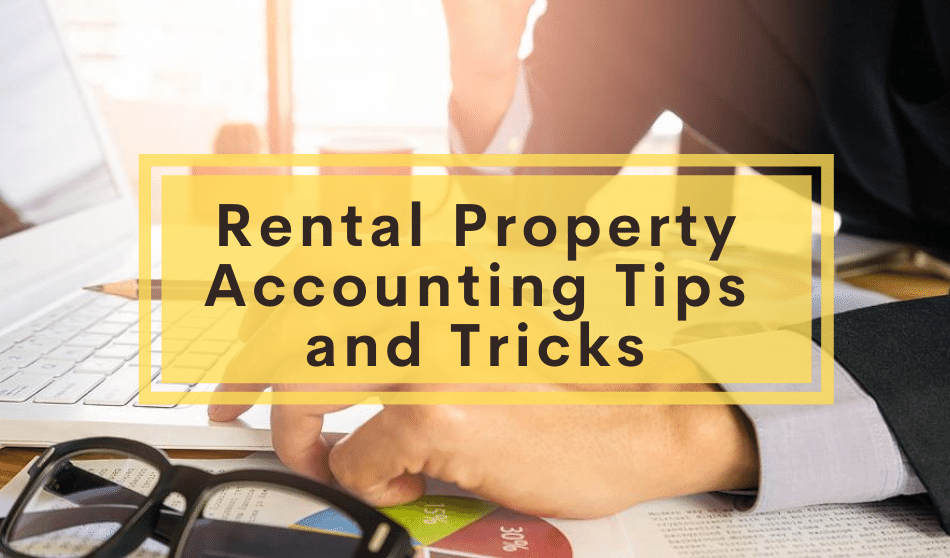
Properly handling your rental income and expenses, including accurately accounting for and tracking your funds, is an essential part of rental management.
Both DIY landlords and property managers need to create a well-defined accounting system, to help them stay organized. Property managers are additionally tasked with adhering to trust account guidelines and properly handling owner funds.
For the novice investor, rental property accounting might seem as simple as tracking rent payments (income) and property maintenance and taxes (expenses). But the seasoned investor, landlord, and property manager can tell you that there are a few more areas to pay attention to when it comes to good bookkeeping and accounting.
Rental Property Accounting Tips
Below is a list of the top tips for rental property accounting to help you stay organized and keep your financial records and reports well maintained.
Understand Transaction Types Related to your Rentals
There are different types of income and expense transactions, and each transaction can be tied to a tenant, a property, or your business. Understanding how each transaction relates to different areas of your business will help you properly maintain your accounting records.
- Tenant income may include: tenant rent payments, tenant late fees, tenant deposits, tenant parking fee.
- Tenant expenses may include: a property expense caused by a tenant that they are responsible to reimburse such as a broken window or clogged toilet.
- Property income may include: reserve fund, application fees, tenant rent received, and other fees collected.
- Property expenses may include: maintenance or vendor expenses, property utility payments, property management fees, etc.
- Business income may include: tenant late fees, management fees, etc.
- Business expenses may include: property management software payments, legal fees, office space rental fees, advertising, etc.
You may notice that some charges can be classified in multiple ways and show up on multiple ledgers, for instance, a rent payment can be both tenant income and property income.
Separate Personal and Business Accounts
Even if you own only one property, you should open a separate business checking and savings account for your rental business. This is the easiest way to keep your funds separate from your personal accounts until you are ready to pay yourself. It’s also the easiest way to stay organized and simplify your reconciliation tasks.
Some landlords may even choose to open a separate account for each property. This is advisable for multifamily properties, where you handle multiple payments and expenses for each unit, but might not be necessary for each single-family rental home you own.
If you are a property manager, it is vital that you have a separate bank account for your business and are familiar with how to handle trust accounts. Commingling funds is illegal and you must keep your owners’ assets separate from your own.
Create a Consistent System for Recording Transactions
Create a process or system for when, why, and how you will consistently post transactions related to your rentals. You should have a clear understanding of who the transaction is related to. You should also have a process for routinely recording your transactions. For example, on Mondays, you may devote one hour to ensuring all transactions are properly recorded.
Have a Reconciliation Plan
Equally important to consistently recording transactions, is reconciling your accounts to ensure money is accurately accounted for.
Reconciliation simply means agreement; meaning do your bookkeeping ledgers agree with what happened in real life; aka your bank statement. Again, the method (whether using paper and pencil or a reconciliation tool) is only as useful as the accuracy of the data-entry.
Your reconciliation plan should include setting aside undisturbed time to the process. The more complex your property portfolio and management business, the more time should be devoted. Reconciling itself is a monthly task but it is recommended to add at least a weekly ban -to-ledger comparison.
One way to accomplish that comparison is by using a bank synchronization tool if available in your software. It is a time-saver in making sure transactions match both locations prior to a proper reconciliation. A bank sync matches and compares the transactions from the bank to those in the software which allows you to update transactions missing details and locate errors and omissions. The software then marks transactions to a ‘cleared’ status which confirms that the financial institution has processed the transaction.
Once the date-entry has been completed and verified at least weekly, your monthly reconciliation should be an easy task. Most programs will list expenses one side and income on the other with a checkbox next to every transaction. Your task is to click the checkbox next to each item that matches the bank statement. When those are checked, the goal is for the total income received, total expenses paid, and ending balance to match your bank statement totals exactly.
Lastly, your reconciliation plan should include saving that data for state reporting compliance, to have handy for your accountant or in case of an audit, and for any other future reference.
Utilize Software to Stay Organized
Good accounting processes are thankfully easy to accomplish with the right tools. And with the time-saving advantage of creating a seamless accounting system, these tools will easily fit into your business’s operating expenses, starting at just $35/mth.
Property management software, like Rentec Direct, is specifically designed to help landlords, investors, and property managers accurately and efficiently complete their accounting and bookkeeping tasks.
You gain access to full general ledger accounting for properties, tenants, and owners. And have the power to review, edit, and print ledgers for every property, tenant, owner, and bank account used to manage your properties. Traditional accounting systems are not designed for property management and require double or even triple entry of transactions to maintain accurate and auditable records.
You may opt to use QuickBooks for rental property accounting but might be intrigued by the additional features rental software offers beyond just accounting tools. You’ll find that property management software comes with a whole range of features that will make each task of your rental business easier. From online rent collection to vacancy advertising, it’s all included in your rental software.
The use of software will prove to be essential should you ever encounter an audit where you will need to prove you’ve abided by trust account requirements and have properly handled your business’s funds.
Prepare for Tax Season
Staying on top of your rental accounting throughout the year is the best way to make tax season as straightforward as possible. You’ll be able to access all the data you need to file your taxes, provide vendors with 1099-MISC forms, and give owners important reports for their tax needs.
Tax season is another time that you will find property management software helpful, as many provide helpful tax tools and online filing options integrated into the system.
Refer to a Professional
Don’t be afraid to ask for help when you need it. Whether you have a trusted CPA you want to work with or a property management mentor you rely on for advice, it’s always helpful to seek a second opinion.
In some cases you may find that you need to hire an accountant or a legal advisor to help you, in either case, they will be grateful that you have followed the tips above for creating an easy to follow accounting trail.
Final Thoughts
You don’t need to be an accountant to have good bookkeeping skills. Just take the time to understand your accounting processes, create a consistent accounting system, and use industry tools, and resources to help you stay organized.





All the points are notable. I always happy to go to find some helpful ways that will help me in property management account. Thanks a lot for sharing this kind of information.
Our pleasure! It’s great to hear that this article will help you with your property management accounts. Thank you for taking time out of your busy day to leave such kind feedback!
Having a designated spreadsheet or a business tracking app where you can track everything as a business expense separately from your personal expenses is crucial.